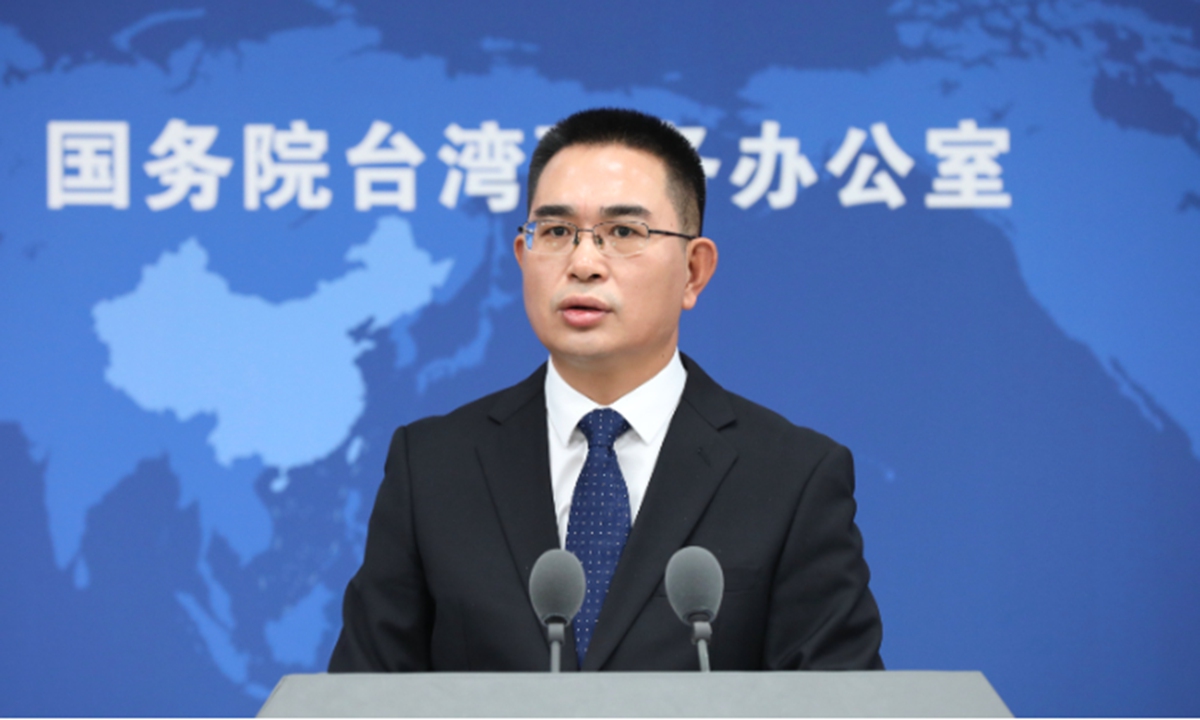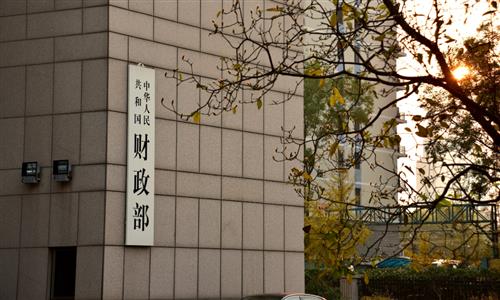DPP’s 'Taiwan independence' stance root cause for difficulty in ECFA-related issues: official

Chen Binhua, a spokesperson for the State Council's Taiwan Affairs Office Photo:VCG
The decision by the Chinese mainland to end tariff concessions for some Taiwan products is normal, and the determination of Taiwan businesspeople to invest in the mainland is unlikely to change, Chen Binhua, a spokesperson for the Taiwan Affairs Office of the State Council, told a press conference on Wednesday.Last week, the mainland announced the termination of tariff concessions for 12 types of products including propylene imported from the Taiwan island starting from January 1, 2024, as the island was found to have violated Economic Cooperation Framework Agreement (ECFA) rules by imposing discriminatory restrictions on mainland goods.
Experts noted that mutual benefit is the essence of economic and trade exchanges between the mainland and Taiwan, urging the island to adhere to the 1992 Consensus and abandon restrictions against mainland products, in order to seize more development opportunities from the rapid rebound of the mainland's economy.
Chen said that, based on the 1992 Consensus, the mainland and the island signed the ECFA in 2010. The Democratic Progressive Party (DPP) authorities on the island has refused to recognize the 1992 Consensus, while it has intensified its discriminatory restrictions against mainland goods. The DPP authorities have enjoyed the dividends of the ECFA, but they have violated relevant provisions under the agreement and relevant WTO rules, resulting in the mainland authorities suspending the tariff concessions for some products under the ECFA.
The DPP authorities' stubborn adherence to "Taiwan independence" and their refusal to recognize the 1992 Consensus are the root causes of the difficulty in resolving ECFA-related issues, the spokesperson noted.
"The decision of the relevant departments to suspend tariff concessions for some ECFA products is normal and reasonable. If the DPP authorities stubbornly adhere to 'Taiwan independence,' we will support the relevant authorities in taking further measures in accordance with related regulations," he said.
"The political tricks played by the DPP authorities have greatly affected normal trade exchanges between the mainland and Taiwan, although the mainland made a lot of concessions and brought more dividends to the island under the ECFA," Wang Jianmin, a senior cross-Straits expert at Minnan Normal University, told the Global Times on Wednesday.
Wang noted that since the DPP came to power, the authorities took a negative attitude toward economic cooperation with the mainland, rolling out a series of restrictive measures on mainland goods. "The decision to end tariff concessions for some Taiwan products is reasonable," the expert said.
When asked whether the suspension will affect Taiwan-based businesses' continued investment in the mainland, Chen said that from January to September, the number of projects involving Taiwan businesses investing in the mainland increased by 23.9 percent year-on-year, and cross-Straits trade reached nearly $200 billion.
"Data fully illustrates that the bright prospects for cross-Straits economic exchanges and cooperation have not changed, and the mainland remains Taiwan business people's best destination," he noted.
Wang noted that although global demand is weak, the scale of trade between the mainland and Taiwan is still very large, and Taiwan businesses are still very optimistic about the huge mainland market.
Since the beginning of this year, the mainland economy has been steadily improving and has become the most important engine of global growth. "We will, as always, share development opportunities with our Taiwan compatriots and enterprises, increase policy support and optimize the investment environment, so that the fruits of cross-Straits integration and development will benefit Taiwan compatriots more," the spokesperson said.
After the mainland resumed imports of sugar apples from Taiwan, grouper imports also resumed recently.
"On the basis of adhering to the 1992 Consensus and opposing 'Taiwan independence,' we are willing to work with the relevant parties on the island to continue to provide assistance for the resumption of imports of Taiwan's agricultural and fishery products to the mainland, on the premise of complying with the relevant inspection and quarantine regulations of the mainland," Chen said.


